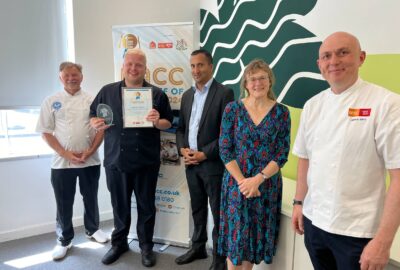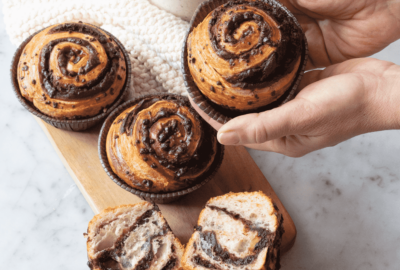Quenching demand for grown up soft drinks
According to the Office for National Statistics, a whopping 20.4% of the population claim to be teetotal – that’s approximately 10.4million people.
A large proportion of these alcohol avoiders are Millennials (born between 1981 and 1996) – and many are also turning their backs on traditional ‘pop’ and seeking out new and exciting flavours. Soft drinks sales are worth £1.5billion in the UK and, as we bask in the heat of the summer, now is a great time to review your soft drinks offering and ensure you’re catering for all the latest beverage trends.
Youth culture
The trend of young people not drinking alcohol is “stark” and “widespread”, according to Dr Linda Ng Fat, lead researcher at University College London. She examined official health data and found that 29% of 16 to 24-year-olds do not drink alcohol. “More Millennials and Gen Zs don’t wish to drink alcohol but are looking for something a little more grown up than a can of Coke. Soft drinks with a light fizz or pétillant (slightly sparkling) is the name of the game.”
– thefoodpeople 2018-19 Food and Drink
Mega Trends
“Another key trend within drinks is non-alcoholic – these tipples are coming into their own as the younger generation shun booze in favour of health. Reflecting shifting tastes as consumers reduce their sugar consumption, there’s also a trend for bitter tasting drinks.” – TUCO Global Food & Beverage Trends Report 2018 Healthy options – we’ll drink to that With increasing numbers of consumers looking at their consumption of sugar and additives, it’s no surprise that many teetotalers are looking for healthier and more sustainable options. Botanicals, such as elderflower and rose, herbal infusions and fruit juices tick these boxes, offering grown up flavour profiles to support sobriety.
Oh sugar!
62% of UK shoppers have not changed their consumption behaviour in any way since the introduction of the Soft Drinks Levy in April last year. Only one fifth claim they check sugar content on packages according to the Sugar Tax Shopper survey, which compared results from respondents prior to the Levy coming into effect. Under the levy, an extra cost of 18p per litre was introduced for drinks with 5g of sugar or more per 100ml, rising to 24p per litre for drinks with at least 8g of sugar per 100ml.
Take care of hydration
Good hydration is important for everyone and is a key concern in care homes, so it’s important to offer a good range of drinks. Neel Radia, national chair, National Association of Care Catering, explains: “As we get older the water content in our bodies decreases and our thirst response is not so effective, making us more susceptible to dehydration. It’s important to ensure residents have access to and are taking in the appropriate levels of fluid for their individual needs. “Providing a wide choice of drinks is also important. Talk to residents and find out what they like to drink. If they can choose something they enjoy and that brings back fond memories, they are naturally more likely to drink it! From water, soft drinks, juices and smoothies through to flavoured teas, there’s plenty of variety to encourage residents to keep hydrated.
“And, don’t forget that food with high water content is also an effective way to keep hydrated, such as ice lollies, sorbets, jellies, salads and summer fruits.”
Full of energy
Energy drinks continue to surge with the brand leader, Red Bull, growing 8.4% in value and 12% in volume, performing well across all channels. This category continues to diversify with sugar-free versions and new flavour profiles. In March, Red Bull launched Coconut Berry available in both Energy and Sugarfree variants (250ml). Red Bull has also developed a series of mocktail serves, using its most popular
variants to offer consumers more choice during the after work and daytime occasions:
Forest Cup Twist
20ml lime juice
20ml apple juice
6 blackberries
20ml sugar syrup (1:1)
1 cold can of Red Bull Original
Garden Smash Twist
15ml strawberry purée
35ml apple juice
5 mint leaves
15ml sour mix (1:1)
1 Cold Can of Red Bull Sugarfree
Tropical Crush Twist
30ml sour mix (1:1)
30ml pineapple juice
8 mint leaves
1 cold can of Red Bull Tropical
Social sharing
As part of its identification of future beverage trends, Kerry Foodservice commissioned proprietary research to understand the evolution of beverage trends globally. The study shows that social sharing is now impacting the progression of beverage trends through menus, and these insights can help the industry identify future beverage trends.
Karl Buiks, VP of marketing, foodservice & strategic planning, Kerry Europe & Russia, comments:
“Our research and analysis of social sharing has shown a number of elements are impacting the progression
of beverage trends. In an era where consumers are constantly sharing their content with the world it is important that products look as good as they taste, so the visual appeal of products is now more important than ever. “Consumers also expect added benefits from their drinks, they want beverages that deliver benefits beyond hydration, and caffeine or alcohol-free alternatives.”
Berry innovations
Following a surge in demand for low/no alcohol options, Woodstar has created an alternative to wine. The blend is crafted using a combination of acai berries, French blackcurrants, blueberries and cherries, together with botanicals and a hint of cocoa. With an ABV of 1%, it provides caterers with an opportunity to support those reducing their alcohol consumption, as well as leading a healthier lifestyle.
Gut instinct
As consumers focus more on gut health, probiotic drinks such as kombucha and kefir are coming to the fore. Gina Geoghegan, founder of Wild Fizz, explains: “Kombucha is a natural sparkling soft drink made
by fermented black or green tea. It is made by adding a colony of bacteria and yeast – called S.C.O.B.Y., an acronym for “Symbiotic Colony of Bacteria and Yeast” – to sweet tea and allowing it to ferment over time.
“Kombucha is widely acknowledged to aid relief in medical conditions, such as IBS, and is quickly becoming a popular alternative to carbonated and sugary fruit-based options.” The kombucha category is expected to grow 25% year on year to reach a global value of $1.8billion by 2020.
Booze-free bars
Such is the popularity of the alcoholfree movement that bars without booze could be the future. Leading the way is Redemption in London, an exciting venture lead by two female entrepreneurs, Catherine Salway and Andrea Waters. Their motto is ‘spoil yourself without spoiling yourself’ and they bill themselves as London’s healthiest restaurant, serving up vegan, sugar-free, and wheat-free food with an alcohol-free bar.
Case study
At the beginning of this year, Cahoots underground bar in London launched a range of healthy, noalcohol and low-sugar cocktails in collaboration with Seedlip – the world’s first non-alcoholic spirit. Michele Venturini, bar manager, estimates that the request for healthier drink alternatives has risen about 10-15% when compared to demands from last year. Michele Venturini adds: “People are becoming more and more conscious about what they are putting into their bodies, so we have created some delicious cocktails which celebrate fresh vegetables, fruits and herbs yet also offer an enjoyable drinking experience. We definitely wanted to make sure that people who are choosing to drink low sugar and zero alcohol cocktails are still having a great experience and that flavour was not sacrificed.”



